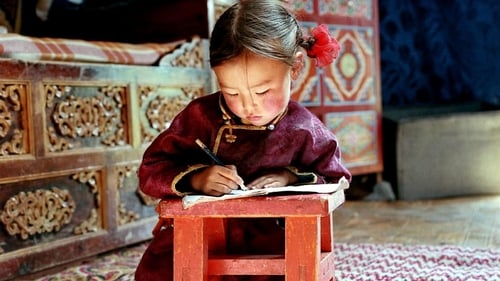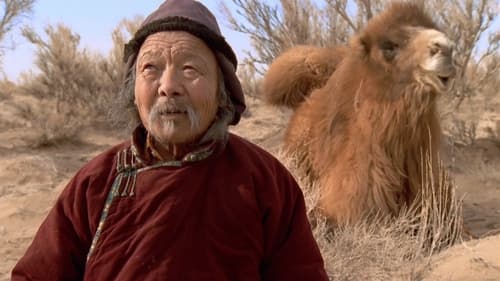
Byambasuren Davaa
Рождение : 1971-01-01, Ulaanbaatar, Mongolia
История
Between 1995 and 1998 she studied at the Movie Academy in Ulaanbaatar. In 1998 she began to work as a moderator and director's assistant with Mongolian National Television. In 2000 she moved to Munich, Germany, to study documentary film and communication sciences at the University of Television and Film Munich.[1]
In 2003 Davaa wrote and directed The Story of the Weeping Camel (2003), which gained several awards and nominations, including Best Documentary Film at the Bavarian Film Awards, Best Documentary at the 57th Directors Guild of America Awards, and a nomination for Best Documentary at the 77th Academy Awards. Her other films include The Cave of the Yellow Dog (2006), for which she won the 2006 German Film Award for Best Children's Film, and Veins of the World (2020).
Her films through 2006 tell stories embedded in the traditional life of the nomads in Mongolia. The subjects of her movies also serve as amateur actors, playing mostly themselves, which positions her work somewhere between documentary and fiction.

Writer
12-летний Амра живёт с родителями и младшей сестрой в общине монгольских кочевников. Его детство — вручную собранный кабриолет отца, сыр на продажу, школа и YouTube с подвисающей картинкой. Амра мечтает попасть на монгольскую «Минуту славы», но вскоре ему приходится резко повзрослеть. К самому дому мальчика подбирается международная добывающая компания, которая рушит не только степи, но и жизни людей.

Director
12-летний Амра живёт с родителями и младшей сестрой в общине монгольских кочевников. Его детство — вручную собранный кабриолет отца, сыр на продажу, школа и YouTube с подвисающей картинкой. Амра мечтает попасть на монгольскую «Минуту славы», но вскоре ему приходится резко повзрослеть. К самому дому мальчика подбирается международная добывающая компания, которая рушит не только степи, но и жизни людей.

Producer
A promise, an old, destroyed horse head violin and a song believed lost lead the singer Urna back to Outer Mongolia. Her grandmother was forced to destroy her once loved violin in the tumult of the Chinese Cultural Revolution. The ancient song of the Mongols, "The Two Horses of Genghis Khan", was engraved on the violin's neck. Only the violin's neck and head survived the cultural storm. Now it is time to fulfill the promise that Urna made to her grandmother. Arrived in Ulan Bator, Urna brings the still intact parts of the violin - head and neck - to Hicheengui, a renowned maker of horse head violins, who will build a new body for the old instrument in the coming weeks. Then, Urna leaves for the interior to look there for the song's missing verses. But she will be disappointed. None of the people whom she meets on the way appears to still know the old melody of the Mongols.

Writer
A promise, an old, destroyed horse head violin and a song believed lost lead the singer Urna back to Outer Mongolia. Her grandmother was forced to destroy her once loved violin in the tumult of the Chinese Cultural Revolution. The ancient song of the Mongols, "The Two Horses of Genghis Khan", was engraved on the violin's neck. Only the violin's neck and head survived the cultural storm. Now it is time to fulfill the promise that Urna made to her grandmother. Arrived in Ulan Bator, Urna brings the still intact parts of the violin - head and neck - to Hicheengui, a renowned maker of horse head violins, who will build a new body for the old instrument in the coming weeks. Then, Urna leaves for the interior to look there for the song's missing verses. But she will be disappointed. None of the people whom she meets on the way appears to still know the old melody of the Mongols.

Director
A promise, an old, destroyed horse head violin and a song believed lost lead the singer Urna back to Outer Mongolia. Her grandmother was forced to destroy her once loved violin in the tumult of the Chinese Cultural Revolution. The ancient song of the Mongols, "The Two Horses of Genghis Khan", was engraved on the violin's neck. Only the violin's neck and head survived the cultural storm. Now it is time to fulfill the promise that Urna made to her grandmother. Arrived in Ulan Bator, Urna brings the still intact parts of the violin - head and neck - to Hicheengui, a renowned maker of horse head violins, who will build a new body for the old instrument in the coming weeks. Then, Urna leaves for the interior to look there for the song's missing verses. But she will be disappointed. None of the people whom she meets on the way appears to still know the old melody of the Mongols.

Screenplay
The little nomad girl, Nansal, finds a baby dog in the Mongolian veld, who becomes her best friend - against all rejections of her parents. A story about a Mongolian family of nomads - their traditional way of life and the rising call of the City.

Producer
The little nomad girl, Nansal, finds a baby dog in the Mongolian veld, who becomes her best friend - against all rejections of her parents. A story about a Mongolian family of nomads - their traditional way of life and the rising call of the City.

Director
The little nomad girl, Nansal, finds a baby dog in the Mongolian veld, who becomes her best friend - against all rejections of her parents. A story about a Mongolian family of nomads - their traditional way of life and the rising call of the City.

Screenplay
Весна в пустыне Гоби, Южной Монголии. Семьи кочевых племен останавливают свое движение, чтобы помочь верблюдам родить. И одна из матерей неожиданно отказывается от своего верблюжонка. Теперь кочевники вынуждены кормить и воспитывать малыша. Но молока не так много, а они в пустыне, надежд на спасение жеребенка совсем мало, но они есть.

Director
Весна в пустыне Гоби, Южной Монголии. Семьи кочевых племен останавливают свое движение, чтобы помочь верблюдам родить. И одна из матерей неожиданно отказывается от своего верблюжонка. Теперь кочевники вынуждены кормить и воспитывать малыша. Но молока не так много, а они в пустыне, надежд на спасение жеребенка совсем мало, но они есть.




